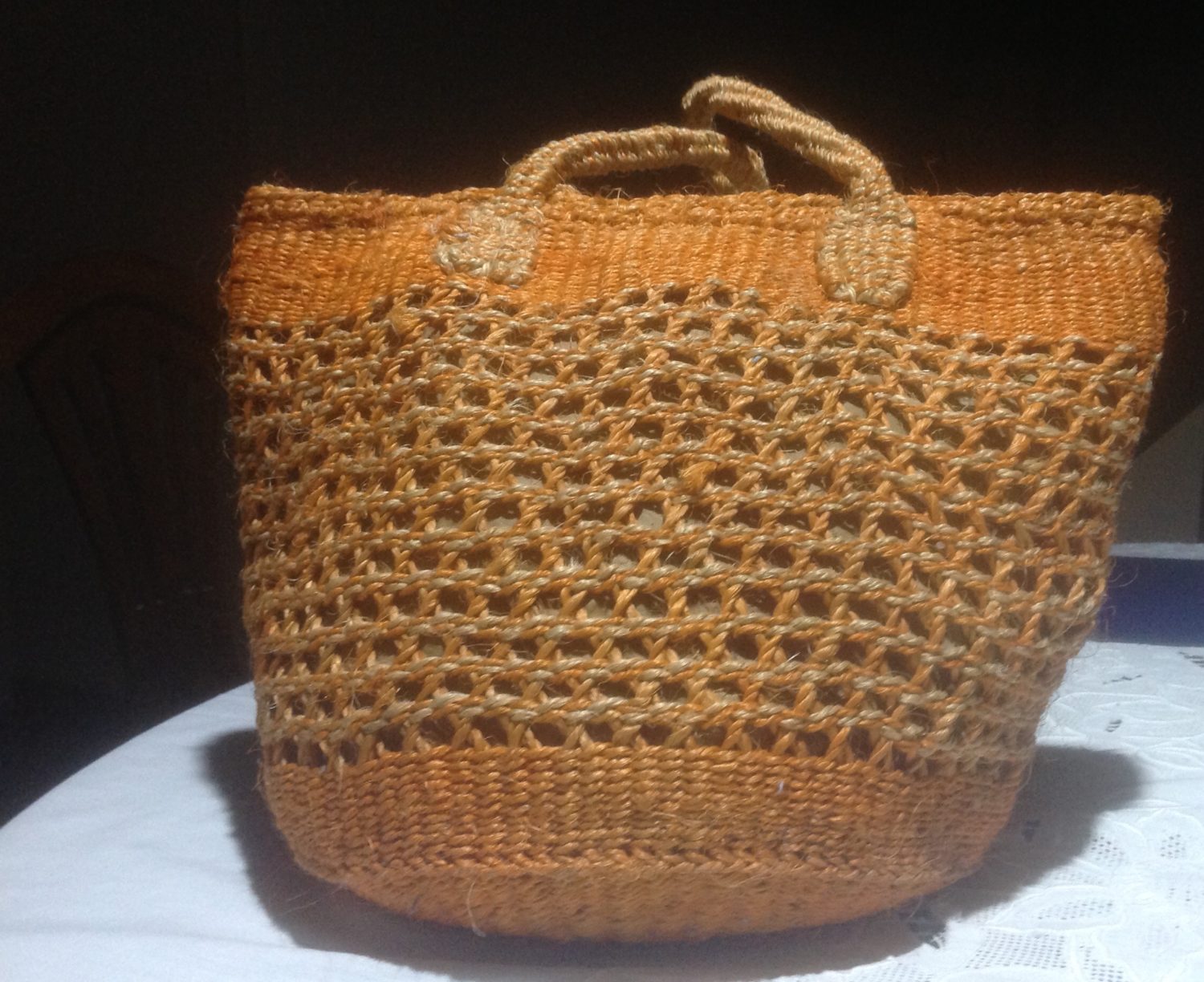In the 1980s, my mother and other Kenyan business women traveled to Europe and North America to sell ciondo. They bought large suitcases, filled them with ciondo that they had bought or commissioned from women at Gikomba and Kariokor markets, carried them onto planes, and sold them somewhere, somehow. Perhaps it was at trade fairs. Perhaps it was on the street. That wasn’t the important thing: It was time away from the husbands and partners and children, time with girlfriends, and time abroad. Their suitcases smelled of ciondo—the sweet, dried vegetable smell of dried sisal. Even today, when I open a suitcase, I expect it to smell of ciondo.
Having sold the ciondo, they’d fill their suitcases with shopping: underwear and socks, t-shirts and shorts, skirts and blouses, clothes for family and additional clothes to sell. It was sourced from discount stores and markets, though a few items might come from Marks & Spencer. When they’d be stopped at the Customs counter at Jomo Kenyatta International Airport, they’d lie that all the clothes in their suitcases were gifts for family, haggle with the Customs officers about the charge, and then calculate if it was cheaper to pay the import tax or a bribe.
Husbands and partners traveled to the airport with extra money, enough to pay taxes, enough to bribe. Sometimes, enough to do both.
They also returned with names of places: Amsterdam, London, Milan, New York, Shepherd’s Bush Market, Marks & Spencer. The particular street in Italy or Spain was difficult to remember, so the names that returned were of cities, not streets. It was so easy to imagine that they mapped those cities, block by block, street by street, learning the little intimacies and secrets that gather as cities. Perhaps they did. Some stories they did not tell.
They created maps with their ciondo, leaving little tracks of Kenya wherever they traveled. Ciondo survive a long time: at 70, my mother still has one she made as a girl. I suspect that ciondo made by women in Gikomba and Kariokor markets, carried abroad by my mother and her friends, still narrate stories of travels and encounter across Europe and North America, of trade and aesthetics, generating maps of African women’s labor and care.
The arrivals area at Jomo Kenyatta International Airport was set up so that waiting family and friends could see those arriving collecting luggage and haggling with Customs. It was not enough to know that a plane had arrived on schedule—to know that someone had arrived, you had to see them collecting their baggage. Arrivals were social occasions: families were reunited, promises to return kept.
JKIA felt like a place for grand departures and arrivals, a place where departures and arrivals were major events in the life of a family and community.
Through my mother’s travels to sell ciondo—perhaps once or twice a year over a period of four years—I learned to experience the airport as less eventful. I was always excited when my mother returned from abroad, thrilled at the promise of a tin of Quality Street chocolates, but I understood the ordinariness of the business trip.
The ciondo-selling women were the first women I encountered as business travelers. Most were professionals of some kind—nurses, secretaries, teachers, traders. They built networks to help each other with bureaucratic hurdles: how to get passports, visas, plane tickets, accommodation. They shared small hotel rooms and hostels, carried food from Kenya and found small kitchens to make it. Across many countries where they didn’t speak the languages, they sold their ciondo with smiles and gestures, choreographing how ciondo could be used.
They did not look like the business women celebrated in magazines, with their suits and briefcases, cigarettes and cocktails. And they stopped being nurses and teachers, secretaries and assistants. Perhaps they were cultural ambassadors, selling Kenyan women’s work to those who wanted something African.
If they encountered discrimination when they traveled–and they surely did–they also generated the terms of the encounter. Because they did not travel as professionals, they were not assessed by the professional standards of where they traveled. No Italian or German nurses judged my mother’s nursing, because it was not available to be judged. They did not travel to try to find seats at tables of power or even to break glass ceilings—they generated other ways of encountering those they met, ways mapped by the smell of sisal and the comforts of home.
And, as they traveled, ciondo designs changed. The traditional kiondo has two leather straps and an open top, because it was designed to carry farm produce: beans, maize, sweet potatoes, arrow roots. The newer ciondo are for urban living and travel abroad, designed like purses: small ones for everyday use, larger ones with leather tops and drawstrings. It might be that ciondo designs started changing as soon as Kenya started urbanizing, but I came to know about these new designs through my mother’s travels.
It’s tempting to imagine these changes. I can see a woman in Milan or Berlin asking these African women whether they had something purse-sized. She points to the purse she is carrying, gestures to the large, traditional ciondo, and, somehow, conveys that she’d be interested in something smaller. And this knowledge travels to Gikomba and Kariokor markets, where something new is designed.
Do Kenyan women still do this? I don’t know. I’ve heard that the Chinese patented ciondo, and mass produce them for Europe and North America now.
Keguro Macharia





